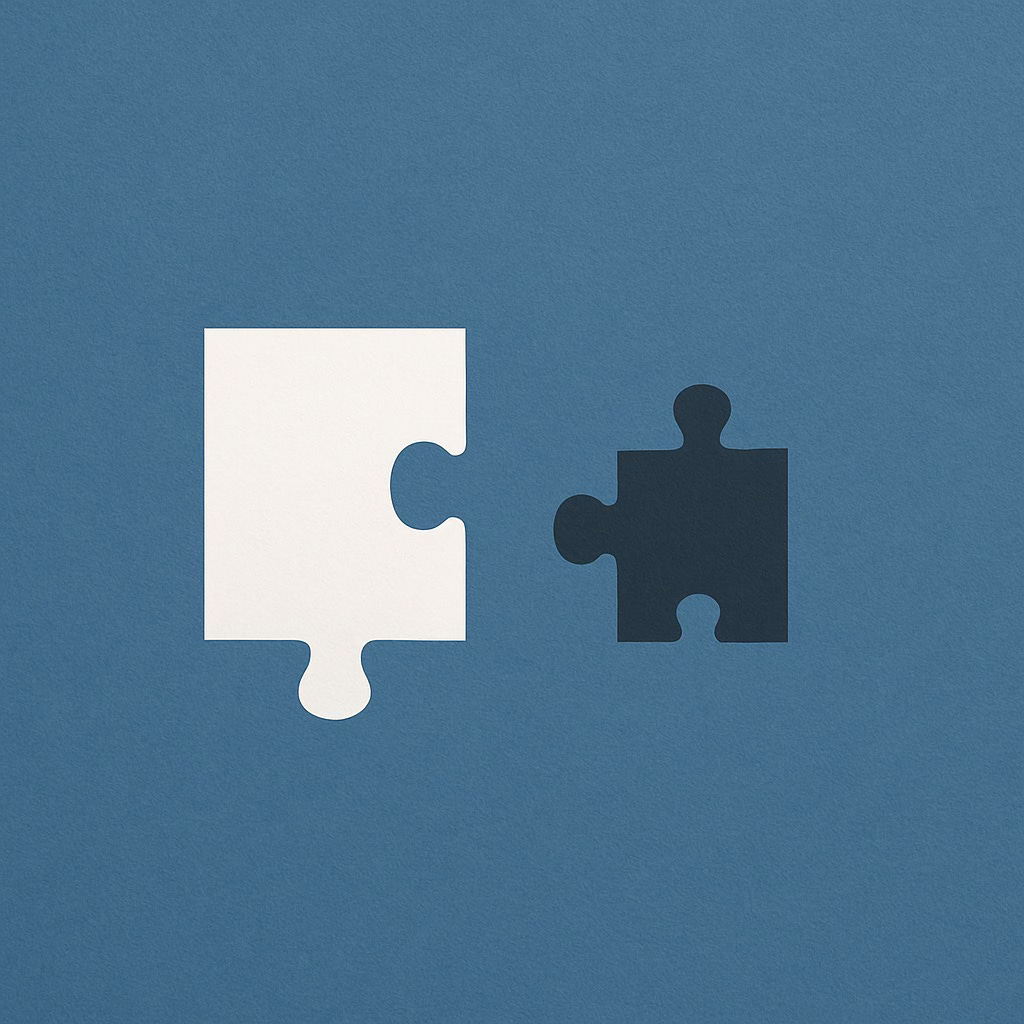The praise still comes. The deliverables still ship. Your performance review will probably be fine.
But somewhere between the morning commute and the afternoon email check, you've started wondering when work became something you endure rather than something you engage with.
Because when most of your waking hours are spent in a role that no longer fits, it starts to erode not just your energy—but your sense of who you are.
You're not failing. You're just... finished. And that feels complicated when you're still succeeding.
Name the Disconnect
It starts subtly.
You go through the motions in meetings that used to energize you. The projects that once felt important now feel like elaborate busywork. Your expertise—the thing people rely on you for—has become a comfortable prison of expectations.
You deliver because you know how. But the curiosity that built that expertise? It's gone.
This isn’t burnout. There’s no crisis. No breakdown. Just a slow fade from engaged to autopilot.
You show up. You execute. You leave. Repeat.
You might notice:
Scanning job boards… then closing the tab.
Praise for work that took zero effort.
Meetings that feel scripted and pointless.
Guilt for being unsatisfied when “nothing’s wrong.”
Sunday nights feel heavy. Monday mornings, empty.
You’re competent. Relied on. Maybe better than ever. But efficiency without engagement? That’s just elegant sleepwalking.
Rethink What Still Fits
The competence that got you here isn’t the issue. Neither is the job, necessarily. The issue is the assumption that being good at something means you should keep doing it forever.
You built your professional identity around mastery. But mastery achieved becomes mastery maintained. And maintenance doesn’t require the same kind of energy.
Old truths that quietly stop serving you:
• Good at it = Should keep doing it
• Expertise = Job security
• Experience = Advantage
• Stability = Success
• Being needed = Being valued
• Professional growth = Personal growth
But here’s what might be more true now:
• Good at it ≠ Fulfilled by it
• Expertise = Golden handcuffs
• Experience = Predictability
• Stability = Stagnation
• Being needed = Being trapped
• Growth ≠ Evolution
Which one hits hardest?
Which one have you outgrown—but haven’t named?
You’re not losing your edge. You’re realizing that competence alone isn’t enough. And that’s a different kind of hunger.
Your skills travel. Your experience travels. Your network travels. What doesn’t travel is the story that says this
container is the only place they belong.
Design Smarter Ways to Use What You Know
This isn’t about quitting tomorrow. It’s about facing what’s already true.
From: "I should be grateful for this job"
To: "I am grateful—and it no longer fits."
From: "I'm too old to start over"
To: "I'm too experienced to settle for this."
From: "What if I regret leaving?"
To: "What if I regret never exploring?"
Sometimes the shift is internal. Sometimes it’s structural. Sometimes it’s both. But it always starts with stopping the lie that competence = contentment.
Audit Before You Act
Your 48-Hour Action: The Engagement Audit
For the next two workdays, track your engagement—not your output. Use three alarms:
🔔 10 AM – Energy level (1–10) + what you're working on
🔔 2 PM – Same check-in
🔔 5 PM – End-of-day reflection
Jot this down:
Which tasks felt alive vs. automatic?
What made time move quickly—or crawl?
Which conversations sparked you—and which drained you?
When did you feel like yourself—and when like an actor in a role?
No pressure to fix anything. Just notice.
Chances are, it’s not all bad. There are glimmers—moments where you’re still in it. Those glimmers are where the real work begins.
What Forward Could Look Like
You’re not broken for wanting out of something that still “works.”
Most people either fake gratitude for the misfit… or torch the whole thing out of desperation.
There’s a better path: intentional experimentation. Use the current job as a platform, not a prison. Try things. Shift dynamics. Test new containers for old skills.
Your current role is not your destiny. It’s just a data point.
The question isn’t: Should I quit?
The better question is: What version of this still feels alive—and how can I build from there?
Want to keep exploring? Choose what fits:
💬 [Follow me on LinkedIn] – Weekly insights on reinvention, transition, and work that still fits.
📬 [Subscribe to Next Edge Notes] – Clean coaching insights, delivered weekly. No fluff.
📚 [Browse the Brief Library] – Sharp reads for professionals navigating the in-between.
No pressure—just more signal, less noise.




